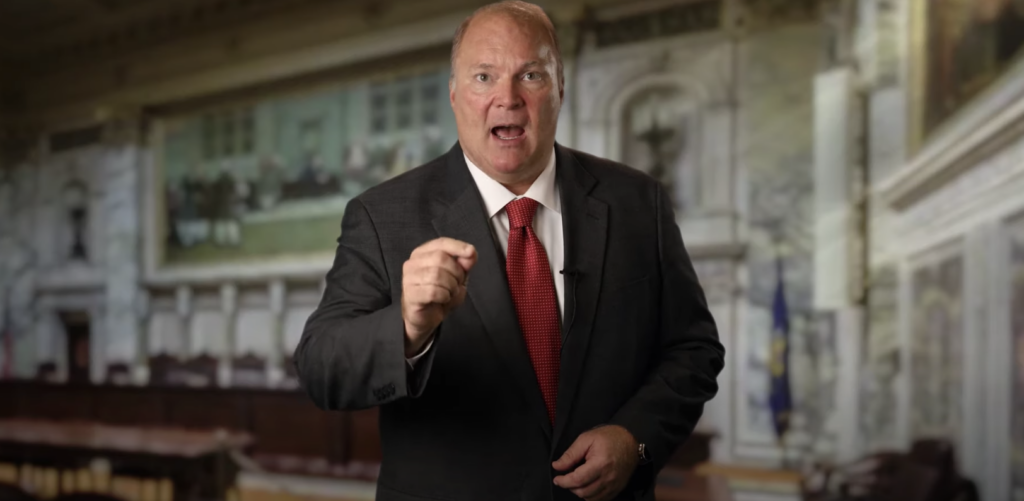How Many Support Gableman Probe?
And what percent in state are confident of election results?
Early in the Introduction to his Second Interim Report, Michael Gableman calls the report “a first step to begin restoring faith in America’s elections.” He would have more accurately described it as a further attempt to spread suspicion about the 2020 election, particularly among Republican voters.
To support his point, Gableman refers to an Ipsos poll earlier this year:
… a January 2022 ABC/Ipsos poll revealed that only 20% of the public is very confident about the integrity of our national election system. This 20% number is a significant drop from 37% from a similar ABC poll conducted one year earlier. America’s doubts about its election system crosses partisan lines.
The actual report from ABC makes it clear that the poll’s respondents had the January 6th insurrection on their mind, not any supposed failure among the election administrators:
America’s faith in the integrity of the election system remains shaken by the events of Jan. 6, with only 20% of the public saying it’s very confident about the system, a new ABC/Ipsos poll finds. This is a significant drop from 37% in an ABC News/Washington Post poll conducted in the days after the insurrection last year.
The responses to two questions on Marquette Law School Poll illustrate the success of efforts to undermine confidence in the 2020 election. The next graph summarizes the combined results when voters were asked during surveys in February and April how much confidence they had in the 2020 election for president.
The five colored bars summarize the results for five groups of voters: from left to right they are Republicans, independents that trend Republican, independents with no party preference, independents that trend Democratic, and Democrats. Both Democrats and Democratically oriented independents express strong confidence in the election results. By contrast, the number of Republicans and Republican oriented independents increases as confidence goes down.
Contrast this to the results when voters were asked about their confidence in the results of the spring 2022 election, as shown in the graph below. As before, Democrats and Democratically leaning independents are very confident in the election.
But in this case the vast majority of Republicans and Republican-leaning independents also say they are either very or somewhat confident in the election.
What accounts for the difference? The lack of any loser insisting that he won this year’s election would seem to be a major factor.
Much of Gableman’s interim report is devoted to attacks on grants from the Center for Tech and Civic Life (CTCL) that allowed Wisconsin’s five largest cities, Milwaukee, Madison, Racine, Kenosha and Green Bay, to upgrade their election infrastructure. Among his charges are that these grants represented “election bribery,” that they were motivated by “partisan get out the vote efforts,” that these efforts represented “governmental and outside corporate collusion,” causing “a host of questionable actions.” The first four chapters—as well as the 11th (the last) are devoted to these and similar charges.
COVID-19 was surging, making it dangerous for voters to vote in person. The virus also targeted older people, who traditionally manned the polls. One result was photos of long lines at Wisconsin polls; the long line, stretching around the block, at Milwaukee’s Riverside University High School made national news.
Gableman offers no evidence to back his assertion that upgrading election infrastructure in the Wisconsin 5 cities was motivated by “get out the vote” considerations, to help Democratic candidates. If that was the aim, it failed, as the next chart shows.
In most of the nation, turnout for both presidential candidates was substantial higher in 2020 than in 2016. Donald Trump’s problem was that, in most places, the percentage growth in Joe Biden’s vote was greater than his.
But the five largest Wisconsin cities, singled out by Gableman and numerous lawsuits aimed at reversing the election, were an exception to this trend. In those five cities, taken as a whole in the graph below, Trump’s percentage growth was slightly greater than Biden’s. If that pattern had held for the rest of Wisconsin, Trump would have carried the state.
Time and again, Gableman’s interim report refers to the “unlawful actions of various Wisconsin election officials” but does not back up these claims with any evidence. For example, it claims in Chapter 9 that “Wisconsin election officials failed to prevent wards and incapacitated persons from voting in the 2020 Presidential election.” In the next chapter, it makes the same accusation about non-citizens. In neither case does it offer any substantiation of its claims. This pattern is repeated again and again.
In his final paragraph, Gableman argues that the Legislature could decertify the 2020 election results, while conceding that doing so would have no legal effect. “It would not, for example,” he says, “change who the current President is.”
The Marquette poll found a majority of Wisconsin voters polled opposed decertification. As the next graph shows, even the majority of Republicans oppose decertification.
When asked by the Marquette poll whether they approved or disapproved of Gableman’s review of the 2020 election, most of the respondents demurred, saying they hadn’t heard enough. This is reflected in the group of columns on the right in the graph below. The two groups willing to offer an opinion were Democrats and Independents who trend Democrat. Both disapproved strongly.
Gableman’s interim report is full of accusations against the people who administered the 2020 election, but offers little of substance to back up those accusations. Though it promises to “begin restoring faith in America’s elections,” the report does just the opposite. It doesn’t even pretend to offer a fair-minded assessment of Wisconsin’s election management. And few survey respondents in the state approve of it. Yet all Wisconsin taxpayers must pay for this amateurish exercise in partisan propaganda.
Data Wonk
-
Why Absentee Ballot Drop Boxes Are Now Legal
 Jul 17th, 2024 by Bruce Thompson
Jul 17th, 2024 by Bruce Thompson
-
The Imperial Legislature Is Shot Down
 Jul 10th, 2024 by Bruce Thompson
Jul 10th, 2024 by Bruce Thompson
-
Counting the Lies By Trump
 Jul 3rd, 2024 by Bruce Thompson
Jul 3rd, 2024 by Bruce Thompson


























In this post Citizens United period the importance of majority opinion has become irrelevant. Precisely what Scotus intended when it gave the right of unlimited campaign contributions to Corporate America.
Add to that gerrymandering, the filibuster, public funding of “values-based” religious schools and Fox “News” propaganda and the home soil is now ripe with everything necessary to grow a crop of right-minded historical revisionists who can help us see more clearly that Slavery was a necessary period of “vital agrarian education for underprivileged Africans.”
Only then will be able to move on to a new understanding of how the Suffragettes were responsible for destabilization and moral decline of the great American experience we once shared.